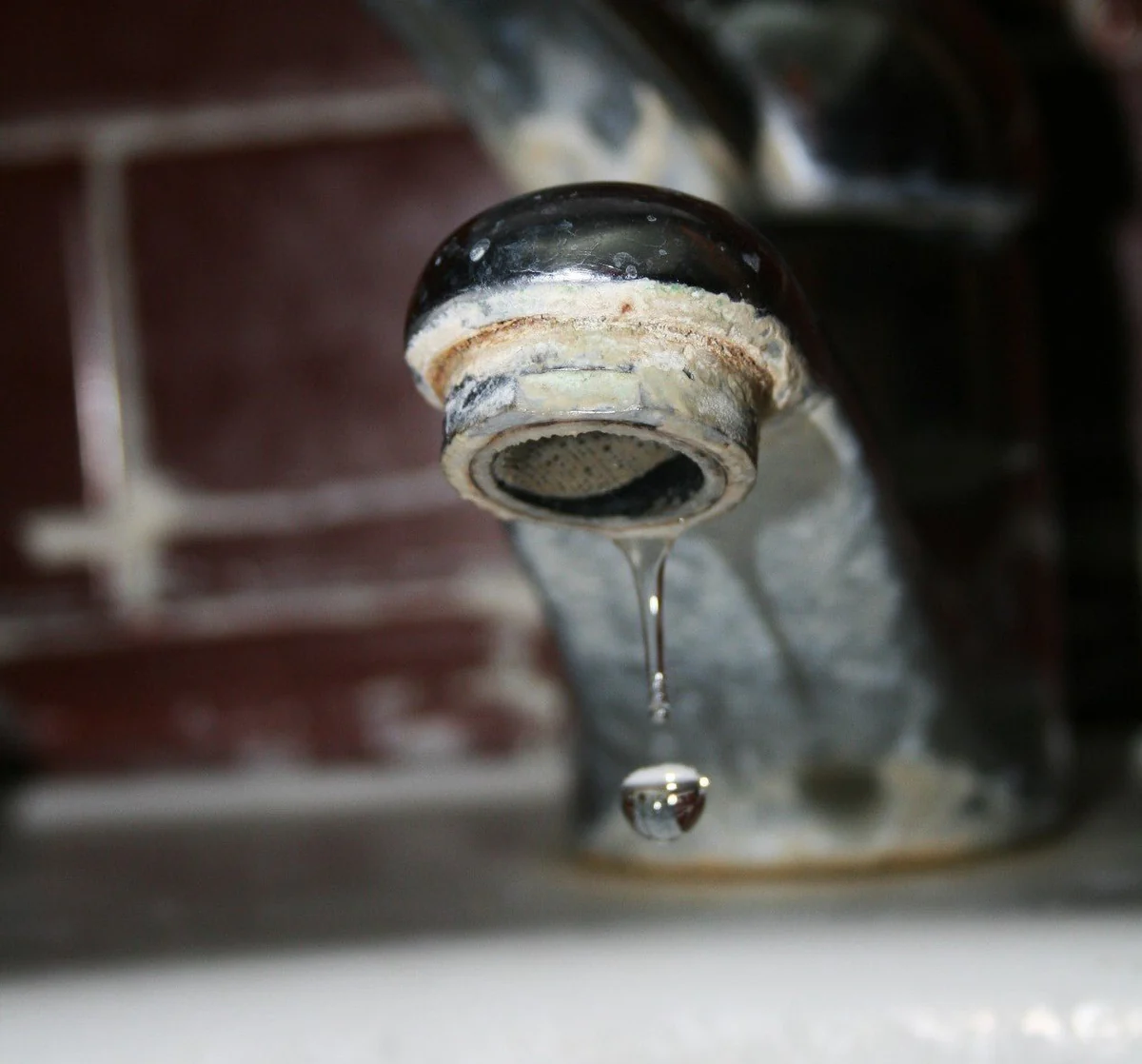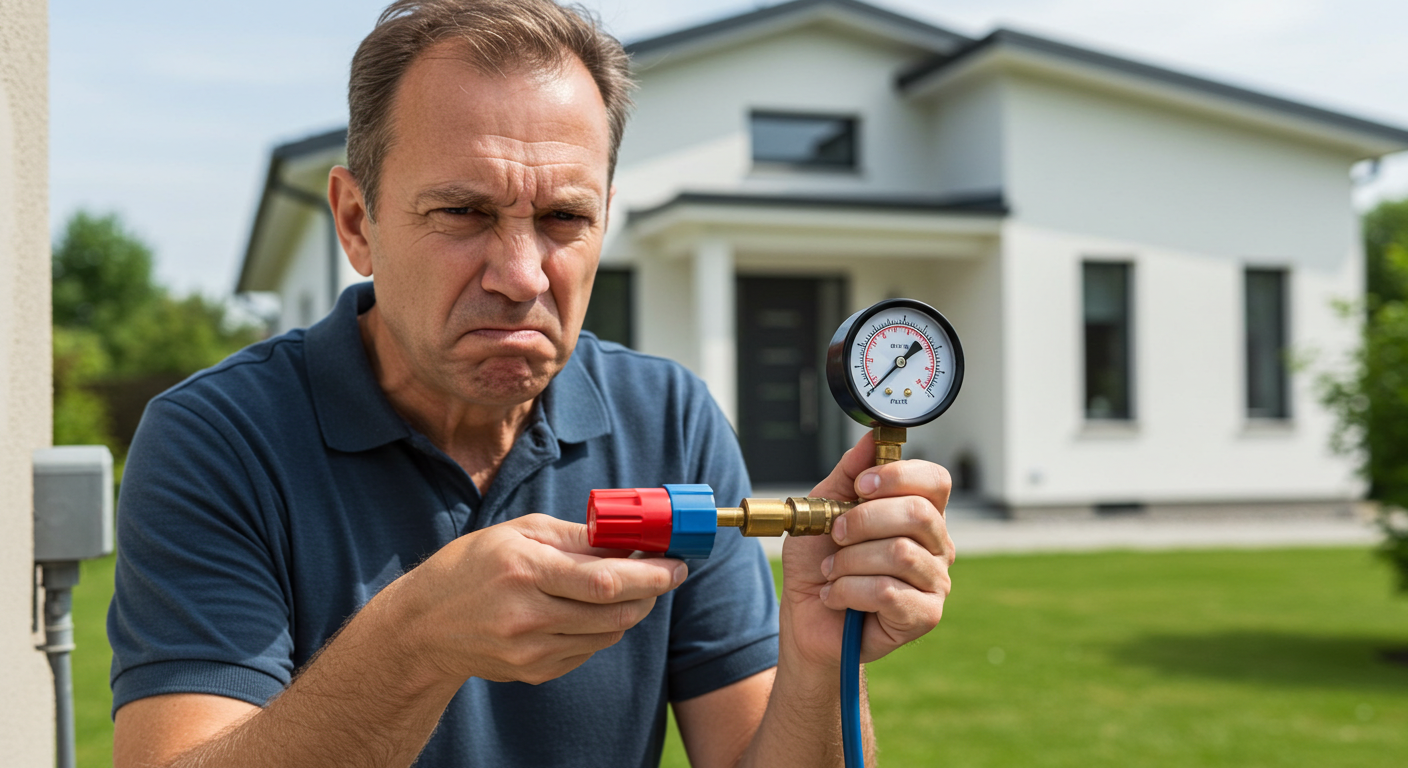How to Tell If You Have Hard Water and What to Do About It

If you’ve ever noticed chalky spots on your dishes, stiff laundry, or reduced water pressure at home, hard water could be the culprit. Hard water isn’t dangerous to your health, but it can quietly wreak havoc on your plumbing system and appliances—leading to costly repairs over time. In this post, we’ll break down the most common signs of hard water, how to test for it, and what to do if it’s affecting your home.
What Is Hard Water?
Hard water is water that contains high levels of dissolved minerals—mainly calcium and magnesium. These minerals aren’t harmful to drink, but they do cause chemical reactions that affect cleaning, water flow, and your plumbing infrastructure.
When hard water flows through your pipes and appliances, it leaves behind mineral deposits, known as scale. This buildup can clog fixtures, lower appliance efficiency, and even shorten the lifespan of your water heater or dishwasher.
Common Signs You Have Hard Water
Here are the most common red flags homeowners notice when dealing with hard water:
- White Spots or Film on Dishes and Glassware
These are mineral residues left behind even after your dishwasher runs a full cycle. - Soap Doesn’t Lather Well
Hard water reduces soap’s effectiveness, meaning you’ll need more detergent and still feel like nothing gets fully clean. - Dry, Itchy Skin and Hair
The minerals in hard water can strip natural oils from your skin and scalp, leading to dryness or irritation. - Dull or Stiff Laundry
Clothes washed in hard water may come out feeling rough, faded, or stiff due to detergent reacting poorly with the minerals. - Low Water Pressure
Scale buildup inside pipes narrows their diameter, reducing water flow throughout your plumbing system. - Clogged Showerheads or Faucets
Mineral deposits visibly clog faucet aerators and showerheads, often leaving just a few working spray holes.
If you’re experiencing several of these signs, it’s worth taking the next step to confirm the issue.
How to Test for Hard Water
There are a few simple ways to determine whether you have hard water at home:
- Soap Test
Fill a bottle with water and a few drops of liquid soap. Shake it. If the water forms little to no suds and looks cloudy, that’s a strong indication of hard water. - Water Hardness Test Strips
Inexpensive test kits are available online or at home improvement stores. They provide a hardness reading in grains per gallon (GPG) or parts per million (PPM). - Professional Water Testing
For the most accurate results, contact your municipal water provider or a professional plumber like Top Flow Plumbing to conduct a full analysis.
According to the U.S. Geological Survey, water above 7 GPG (or 120 PPM) is considered hard, and anything above 10.5 GPG is very hard.
Why Hard Water Is Bad for Your Plumbing
The biggest concern with hard water is what it does to your home’s internal systems:
- Scale Buildup in Pipes: Over time, this reduces water pressure and increases the risk of leaks and clogs.
- Damaged Water Heaters: Mineral scale insulates heating elements, forcing your water heater to work harder and wear out faster.
- Appliance Wear and Tear: Dishwashers, washing machines, and even coffee makers lose efficiency and require more frequent repairs or replacements.
- Higher Energy Bills: Your systems become less efficient due to buildup, meaning more energy is used to achieve the same performance.
Top Flow Plumbing can help you determine if hard water is shortening the life of your fixtures and what steps to take to correct it.
Hard Water Solutions for Your Home
Once you confirm hard water, here’s how to tackle the problem:
1. Install a Water Softener
This is the most effective whole-home solution. Softener systems use ion exchange to remove calcium and magnesium ions and replace them with sodium or potassium. It protects plumbing, improves water quality, and enhances appliance longevity.
Need help choosing the right water softener? Our residential plumbing experts can help recommend and install the right system based on your home’s size and water usage.
2. Use a Salt-Free Conditioner
These systems neutralize minerals instead of removing them. While not as effective in high-hardness areas, they require less maintenance and are more eco-friendly.
3. Install Point-of-Use Filters
Smaller filters on your kitchen faucet or showerhead can reduce buildup and improve taste and skin feel in areas where you use water most frequently.
4. Flush Your Water Heater Regularly
Mineral deposits settle at the bottom of your tank. Flushing it out every 6–12 months helps maintain performance.
5. Routine Plumbing Maintenance
Schedule annual inspections with Top Flow Plumbing to ensure mineral buildup hasn’t already caused damage. Early detection is key to avoiding expensive repairs.
Don’t Let Hard Water Drain Your Wallet
Hard water might seem like a minor inconvenience, but over time, it can cost you thousands in repairs and replacements. From shorter appliance lifespans to scale-clogged pipes, it’s a silent issue that demands proactive solutions.
At Top Flow Plumbing, we help homeowners across North Texas protect their homes with effective water treatment solutions. Whether you’re looking for a softener system or need help diagnosing plumbing damage from hard water, our team is here to help.
Ready to Fix Your Hard Water Problem?
If you’re seeing the signs or want peace of mind, contact Top Flow Plumbing today for a professional water analysis and a custom solution for your home. Say goodbye to scale, soap scum, and inefficiency—and hello to cleaner water and long-lasting plumbing.
Keep Exploring Plumbing Insights
Looking for more expert tips and solutions? Check out our other articles for helpful advice, maintenance guides, and smart ways to protect your home’s plumbing system.
You Can Trust Us With Your Family's Plumbing Needs
Contact Top Flow Plumbing Co. today for reliable solutions tailored to your home’s plumbing needs so you don't have to worry about your home being ruined by plumbing issues.




